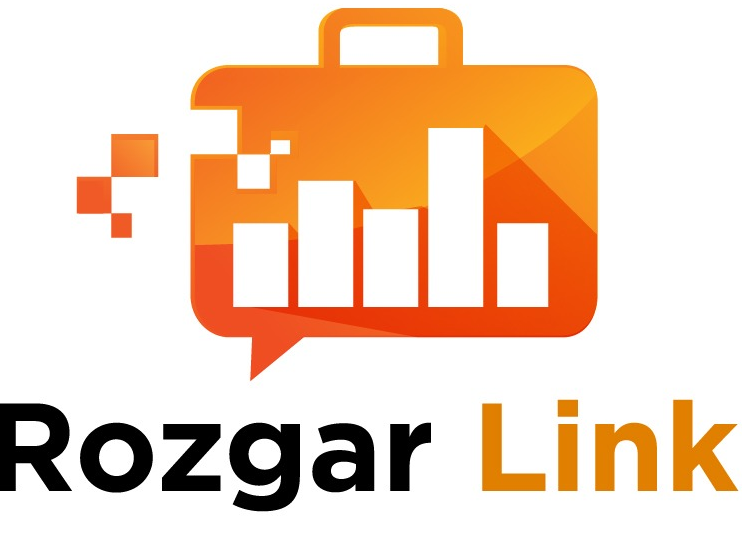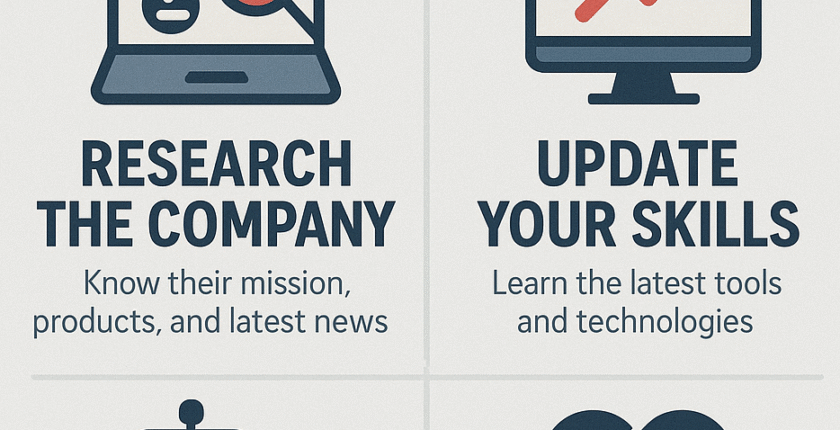How to Succeed in a Job Interview in 2025
A Complete Guide
Job Interviews 2025: Complete Guide
Interviews have always presented a pivotal moment in careers, but in 2025, they’ve completely transformed. With AI going mainstream for recruitment remote hiring and skills-based assessments becoming the industry standard, candidates have to prep radically different compared to five years ago. Fortunately even though mediums and formats have changed the basics of making a memorable impact have not. This guide covers everything you need to ensure you land that interview in 2025 . How to prepare for it, and how to respond to difficult inquiries all with self-assuredness.
1. Learn about the new hiring landscape.
Before attending an interview it is vital to understand how hiring operates nowadays. Companies are increasingly deploying applicant tracking systems. AI-based resume screening and pre-interview assessments. Consequently by the time you come to meet a human interviewer you havce already been subjected to several automated assessments.
While face to face interviews remain standard many candidates are experiencing online interviews using Zoom Microsoft Teams and even AI-interview bots. Employers evaluate not just the candidates technical skills but also their adaptability to modern digital workplace tools and their proficiency in digital communication .
Takeaway: Learn the platforms you’ll be using, understand the company’s hiring process and prepare for both human and AI interactions.
- Researching the Company
This might sound like an antiquated piece of advice but its importance is not likely to decrease anytime soon. In 2025, employers appreciate candidates who go beyond studying the historical background of a company and its basic reports and get to understand the company’s current position within the market its core values, and its likely future trajectory.
Here is how to gather the information:
• Search for the most recent projects and releases on their website and press releases.
• Visit their social media accounts to analyze how they relate to their customers and staff.
• Investigate the LinkedIn pages of people who hold comparable positions to find out what competencies they emphasize.
• Engage with materials on the industry to allow you to explain the relevant general market trends.
Specifying company information in response during interviews demonstrates real motivation instead of a simple desire for a paycheck.
- Prepare for Behavioral Questions
Employers have started asking more behavioral and situational questions instead of more generic questions like
“Tell me about yourself.”
They want to see how you have solved real issues and how you may approach challenges in the future.
The STAR method (Situation, Task, Action, Result) will help you respond best:
• Situation: Give a brief description of the context.
• Task: Describe what your responsibility was.
• Action: Explain what you did.
• Result: Tell what the quantifiable result was.
Suppose you are asked about resolving conflict in the workplace. You might describe a situation involving a project with teammates who had differing viewpoints how you promoted constructive conflict and how the resolution improved productivity.
Tip: Get a few STAR stories for interview questions focusing on leadership problem solving and ollaboration and tailor them to the specific situation.
- Showcase the Skills that Will Matter in 2025
If you want to get shortlisted for a job you need strong technical skills but it takes soft skills to get a job offer. Today many companies value emotional intelligence flexibility and other soft skills. With AI taking over repetitive tasks employers want skills that are human driven such as imagination and teamwork.
Some skills to prioritize in 2025 are:
• Digital literacy: Comfort with AI tools automation software and hybrid work platforms.
• Critical Thinking: The ability to analyze a situation and make a decision.
• Communication: The ability to express thoughts in a coherent manner in writing or a conversation.
• Adaptability: The ability to change direction quickly in a dynamic work environment.
When asked to provide examples in the interview make sure you do not just answer with a list of these skills. Your tone body language and the way you organize your answers will showcase the skills.
- Ace Virtual Interviews
Virtual interviews are permanent features of work life. But unlike in-person interviews virtual interviews have obstacles like slow internet awkward silences and lack of nonverbal cues. Differentiate yourself by treating these meetings as you would an in-person meeting.
Tips for virtual interview success include the following:
- Prepare the interview environment: a quiet room a light neutral background and adequate lighting.
- Work attire: Dress in full interview clothes not just the part you think people will see. This will help you get in the right mindset for a professional meeting.
- Check your technology: You would not have a good interview with laggy internet broken mic cloudy camera or any combination of the 3.
- Use effective body language: To keep eye contact look at your camera smile often and nod your head when you listen and the interviewer is speaking.
Bonus tip: To avoid losing your place keep a printed copy of your resume and any notes you have. You can look at these without the interviewer noticing.
- Responding to Future-Focused Questions
In 2025 interviews a new trend denotes the anticipated questions such as these:
- “How do you see your role evolving with AI tools?”
- “What do you think this industry will look like in five years?”
- “How do you plan to keep your skills relevant?”
When asked these questions the idea is to demonstrate positive and enthusiastic thinking and an anticipation of the level of proactivity needed in the position. As such responses should attempt to draw positive enthusiastic and relevant thinking along these lines:
“I believe AI will automate certain repetitive tasks in the industries however I expect that this will create opportunities to focus on making important strategic and innovative contributions. I intend to reskill continuously in key data and leadership areas to ensure my long-term contribution valuable.”
- Ask Smart Questions
At the end of almost every interview you’ll be asked: “Do you have any questions for us?” Saying “No” is a missed opportunity. Instead prepare thoughtful questions that show genuine curiosity.
Examples include:
- “What are the biggest challenges the team is currently facing?”
- “How does this company support professional growth and upskilling?”
- “What does success in this role look like after six months?”
These types of questions demonstrate that you have already thinking about contributing to the company’s success.
- Ask Intelligent Questions
At the end of nearly every interview you attend you’ll get the question “Do you have any questions for us?” This is a moment you should never miss. Instead of saying “No”, spend this time highlighting prepared questions that show you have done your homework prior to the interview.
Examples include: “What are the biggest challenges the team is currently facing?” “How does this company support and encourage professional growth?” “What does success in this role look like after 6 months?”. Questions like these indicate that you have done your research on the company and you are already thinking of the success the company will have.
Negotiating Salary Confidently
By 2025, due to the implementation of pay disclosure laws. Salary negotiations are expected to become more transparent. Still these conversations can and are expected to make candidates nervous. Potential candidates should do the following: research the role and the industry standard salary to have a more informed and confident approach on range.
Provide a range to make it easier to negotiate and include the benefits in your total compensation that include mental health days vacation days remote work provisions and professional development.
If asked early in the process, you can politely say: “I’d like to understand the role and responsibilities more fully before discussing salary expectations. Could you share the budgeted range for this position?”
- Follow Up Professionally
To differentiate yourself one of the easiest things to do is send a personalized follow-up message within a day of your interview. Thank the interviewers for their time reference a topic from your conversation and state your interest in the position one more time.
For Instance:
“Thanks for the great conversation yesterday. I really appreciated learning about your upcoming project in digital transformation. I look forward to the opportunity to contribute in specific area to reach the project’s objectives.”
In Conclusion
Successfully navigating a job interview in 2025 requires integrating the old with the new. Research practice and confident communication remain essential fixtures but a hint of something more will be required to demonstrate a positive worth embracing the change and advanced use technology.
Anticipating new hiring trends and using the in-person as well as virtual interview formats along with the right balance of hard and soft skills will not only demonstrate to your interviewers that you are a good candidate you will also prove your potential to excel in future of work.
Every interview is your chance not only to prove your worth but to show what you can do and whether the company is what you want too. It is best to approach an interview with confidence and a willingness to learn and be real about yourself. In doing so confidence and willingness to learn will increase your chances of getting an offer.


Hi, this is a comment.
To get started with moderating, editing, and deleting comments, please visit the Comments screen in the dashboard.
Commenter avatars come from Gravatar.